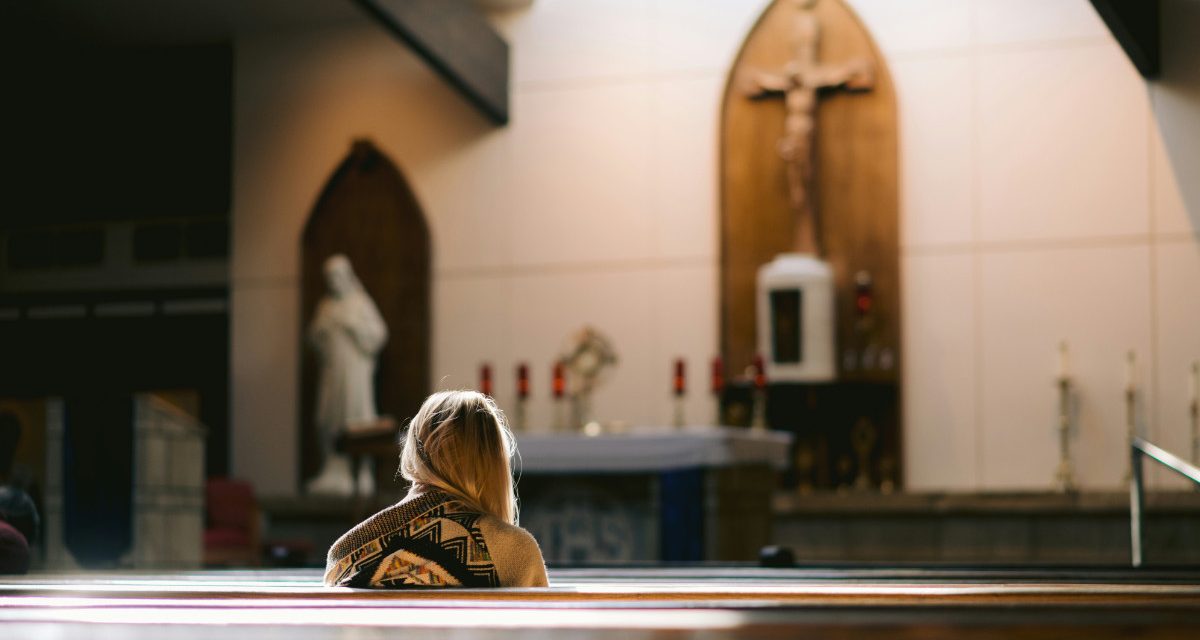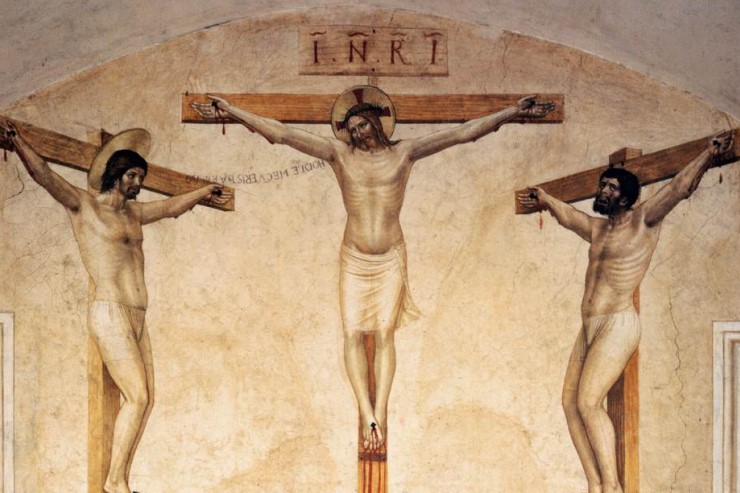Someone approached me recently and asked a very honest, vulnerable question. She said that she reads on blogs and hears on Catholic radio the beauty of the practice of frequent confession, but she hasn’t been to the sacrament in a very long time. She’s intimidated, not even by the fact that she feels she has to a lot to confess, but she’s worried she’s going to do it incorrectly.
So let’s look a little closer at the sacrament.
Four essential parts
First, we should not be afraid of simply telling the priest that because it has been a long time, we might need some help. The priest is not there to trap you into doing or saying the wrong thing. He is overjoyed that you have returned to the sacrament, and he’ll do everything he can to help you through it.
There are four essential parts to the sacrament. More will be said and will happen, but the four essential parts are:
- You need to name your sins
- You need to be sorry for your sins.
- You will receive absolution, or the forgiveness of Christ through the priest.
- You will go and do your penance.
Examine your conscience
Let’s break these down. It’s important to start with a good examination of conscience. This means to think about what you’ve done and what you’ve failed to do. Where have you messed up? Ideally, it’s good to do this every night before you go to bed. But it’s vital to do it before you go into the sacrament of Reconciliation. The more you do this on a daily basis, the easier it will be to do before approaching the sacraments.
There are several guides that can help you do this. Some help us examine our consciences based on the Ten Commandments or the Seven Deadly Sins. Some focus on the Precepts of the Church. You can find some here, here, or here. During this process, pray to the Holy Spirit to help you be honest and vulnerable and have sorrow for your sins.
Contrition
It’s important that we are actually sorry for what we’ve done. The only way we can be forgiven is if we regret what we have done. At times Catholics have a reputation of using Confession as permission to go back out and sin again. Sin on Friday, confess on Saturday, Mass on Sunday, sin on Monday… While that may be reality because of concupiscence and our fallen nature, that cannot be our intent in receiving the sacrament! We must strive to truly be sorry for what we have done and to amend our lives.
Perhaps it would help to spend some time meditating on the Passion and remembering the pain our sins caused Christ. We should strive to be sorry for our sins because of how they hurt God. But it’s also common to be sorry because we fear the punishment that we deserve because of the sin or because we regret what that sin has done to ourselves and others. We call this imperfect contrition – but you know what? God works with that, too. That’s sufficient for the sacrament of confession.
In the confessional
After examining our consciences, we approach the priest in the sacrament. It is common to begin with a simple statement like, “Bless me, Father, for I have sinned. Its been (name the time—weeks, months, or years) since my last confession.” Again, it is important to be honest with the priest. If you can’t remember because it’s been years, tell him that. If you are going to need help, be honest and tell him that, too. This knowledge helps the priest know how to counsel you if he chooses to give you spiritual advice before your penance.
You want to make certain that you confess all your mortal sins and the number of them. A mortal sin is a serious sin that you committed willingly, knowing it was a serious sin. John talks about mortal, or deadly, sin in his first epistle and distinguishes it from venial, or less serious sins (1 Jn 5:16-17). When we commit a mortal sin, we want to get to confession as soon as possible. Mortal sin kills sanctifying grace in our souls, and we don’t want to die without sanctifying grace in our souls.
After naming our sins—all the mortal sins and as many venial sins we remember—the priest might give you counsel at this point. Then he will ask for an act of contrition. This is our chance to express our sorrow for our sins and our desire to amend our lives. Feel free to bring print it out if you don’t know it by heart. Again, the priest is there to help you!
What now?
After your confession, do the penance the priest gives to you. Why do we need to do penance? Just because we’re forgiven doesn’t mean there aren’t consequences to our sin. Our parents can forgive us for wrecking the car, but there’s still a wrecked car to deal with. Penance, both the prayers or acts the priest gives us in the confession and the voluntary penance we do throughout our daily lives, is our way of dealing with the wrecked car—helping to expiate our sins, showing God our sorrow and love.
As you leave confession and go back into the world, pray daily for the strength to avoid the occasion of sin, especially for those sins from which you were just absolved. Confession gets easier the more we go. Sometimes we might be tempted to think, Well, I only have venial sins. I don’t have to go. But confession gives us so much grace! It strengthens us against temptation and gives us the grace we need to fight sin. It gives us the peace of Christ.
The sacrament is a great gift, and a place to encounter Christ. Take advantage of it often!
Image credit: Photo by Josh Applegate on Unsplash
Please help spread the Gospel. Share Joan’s post with family and friends on Facebook and other social media.
We are grateful for your support…
We welcome both one-time and monthly donations. A monthly subscriber giving just $10 a month will help cover the cost of operating Integrated Catholic Life for one day! Please help us bring enriching and inspiring Catholic content to readers around the world by giving today. Thank you and may God Bless you for supporting the work of Integrated Catholic Life!














